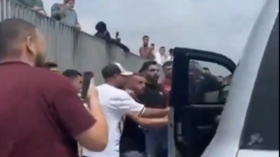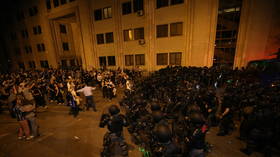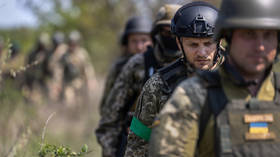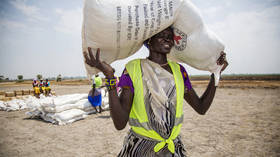Children of Russia’s elite accused of living above the law
A Russian official’s daughter, who knocked down two people when driving, killing one, is facing a retrial. A Russian court says there were major violations in procedure during the first hearing.
Images of the crash caused public outrage. They showed Anna Shavenkova, daughter of the head of Irkutsk’s election committee, checking the damage to her car and not the victims.
The accident in December 2009 claimed the life of one woman and severely injured another. Shavenkova was given a three-year suspended sentence which was recently revoked.
The retrial is expected to start soon, but that brings little hope to Yulia Pyatkova, one of Shavenkova’s victims.
“A person can commit a crime and remain unpunished. Anna Shavenkova was not and will not be punished properly for what she did to us. I am sure of it.”
It is not the first time that children of high-ranking officials have caused controversy with their reckless driving and apparent lack of punishment.
When Valery Fadeev was mowed down by a car, it was just the beginning of a long and very difficult road to recovery.
Five years ago, Valery was knocked down at a bus stop and seriously injured. Since then he has been unable to gain a full investigation.
The memories of that day are still very clear in his mind.
“I remember exactly how it all happened – moment by moment,” Valery said. “My friend Ilya and I were standing here. As we parted, he left to cross the street on the green light – I remember the green light vividly. I had turned and begun walking in that direction, when I heard a sound and saw something flying towards me.”
The driver of the car was 18-year-old Evgenia Arbuzova, daughter of a former high-ranking FSB officer.
Valery’s case made it only to the civil courts after being denied a criminal trial.
“We asked for three million rubles in compensation. She was sentenced to paying 100,000 rubles to me. And she did, in installments. But before the trial, she was a shareholder at a major commercial bank in Moscow. At the time of the trial, it appeared she was just a poor student with 600 rubles monthly maintenance allowance,” Valery said.
Valery made eight attempts to have criminal proceedings opened but was refused every time.
“If an ordinary person had been in her place, they would have faced criminal punishment long ago,” notes lawyer Vyacheslav Popkov. “The incident is too serious to refuse to open a criminal case. There’s a category of the population in Russia which is immune from criminal prosecution.”
Valery's repeated attempts to get the case tried in the criminal courts led to Arbuzova’s family making accusations against him. They are claiming he jumped in front of the car and was trying to extort money from them.
In response, Valery made an online plea to Dmitry Medvedev: “I hope for your objective help, Mr. President.”
An investigation into the legitimacy of the refusals to launch criminal proceedings has now been ordered.
“I made my online statement not because I want compensation for my health, but because I have been accused falsely and because of all the corruption. I want justice,” – said Valery.
With a full investigation yet to be conducted, Arbuzova remains in the driving seat whilst Valery is left to slowly rebuild his life with the help of his friends and family.
Fred Weir, a journalist from the Christian Science Monitor, said similar cases occur in other countries, because the rich and powerful always have more means to defend themselves. He believes the reason some high-ranking officials and their family members can go unpunished in Russia is related to its Soviet past.
“I well remember that in the Soviet Union a party member could not be arrested. It doesn’t mean that party members could get away with anything, but the party charged them first. If they judged that he should be arrested and tried for a crime, they would be expelled from the party before they would go into the justice system,” he recalled.
“It was only like twenty years. Now that’s gone but it’s probably still fixed in every policeman’s mind – that certain people are untouchable,” Weir concluded.













